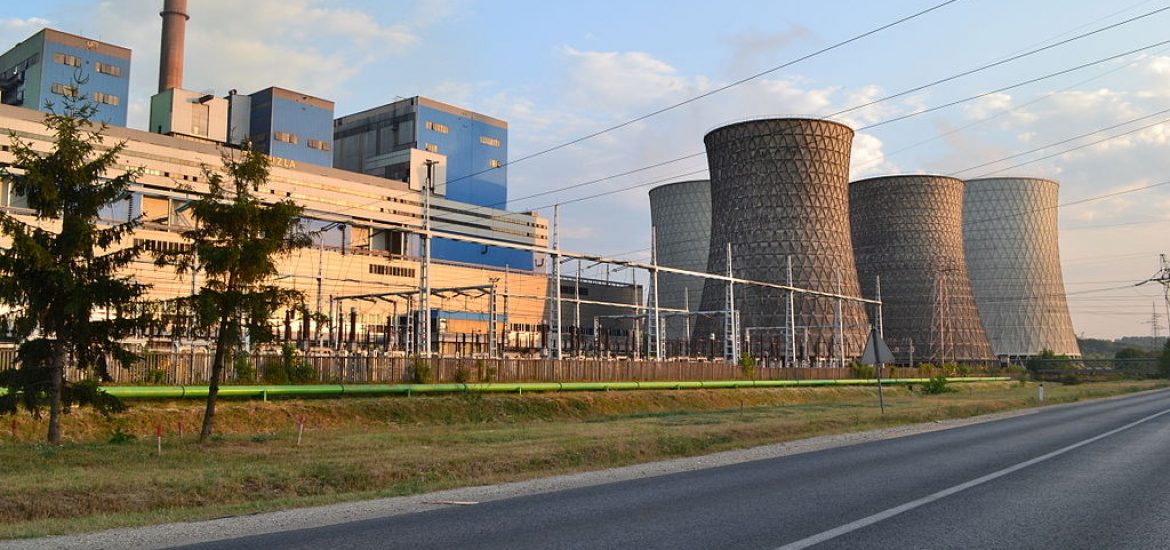
Two huge Chinese-backed coal projects in the Balkans are using unrealistic projections of profitability and environmental charges, according to the NGO Unearthed.
The 450-megawatt coal-power project in the Bosnian city of Tuzla is due to replace an ageing 715MW plant on the site (pictured).
Tuzla has been called part of China’s ambitious “Belt and Road Initiative” by the Beijing media.
The state-owned utility Elektroprivreda Bosne-i-Hercegovine (EPBiH) is also looking to open an ash dump at nearby Sicki Brod to serve Tuzla.
Physicians in Tuzla warn that respiratory diseases caused by air pollution have been rising, especially among young children. Tuzla now accounts for around 20 per cent of all Bosnian lung diseases.
Meanwhile, a planned 350MW power station in Kostolac, Serbia, could frustrate the countries’ efforts to join the European Union.
Unearthed said the feasibility studies used to obtain approval for both sites had under-estimated the running costs under the EU’s carbon market.
Coal-fired generation has dropped during 2019 by 19 per cent across the European Union.
Serbia is negotiating to join the EU, possibly in 2025 if it can resolve its dispute with Kosovo. It first applied in 2009. Bosnia only applied in 2016.
Frede Hvelplund of Denmark’s Aalborg University labelled the Bosnian feasibility study “absurd” for estimating the EU carbon dioxide charges at less than a third of the current €25 a tonne under the Emissions Trading Scheme (ETS).
Hvelplund said the carbon pricing alone meant the study was “totally wrong”.
Coal-fired power stations are designed to last up to 40 years with most European countries trying to agree on deadlines to abandon coal.
The Health and Environment Alliance (HEAL) reported that in 2016, 16 coal power stations in the Western Balkans emitted as much sulphur dioxide as all the EU’s 250 coal plants. The study blamed the 16 stations for 3,900 premature deaths per year.
At the Jezero II landfill site for waste from the power plant in Tuzla, a 2015 study by the University of Chemistry and Technology in the Czech Republic found nickel, chromium, cadmium, arsenic and mercury in soil samples. Higher levels of carcinogenic cadmium were found in onions from the area.
A 2019 International Energy Agency’s (IEA) World Energy Outlook report said the world’s coal mines emitted around 40 million tonnes of methane each year.
While methane dissolves faster than carbon dioxide, it has 30 times the warming impact of carbon dioxide in the atmosphere over a century.
Tuzla. Picture credit: Wikimedia





